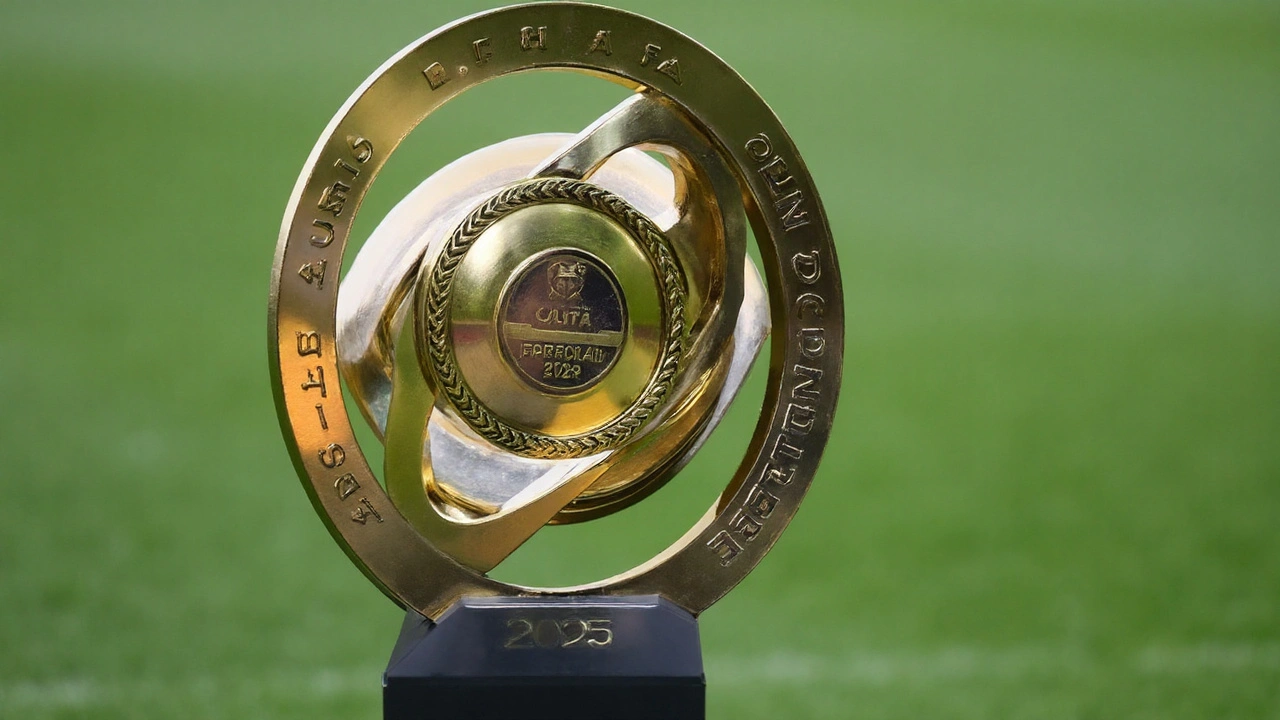Tournament Overview
The 2025 FIFA Club World Cup 2025 marked a historic shift for global club football. For the first time, the competition expanded from a six‑team knockout to a 32‑team festival, mirroring the World Cup format and giving clubs from every confederation a chance to compete on U.S. soil.
Kick‑off was on June 20, with group matches spread across ten venues – from Miami Gardens and Orlando to Seattle and Pasadena. The schedule ran for just under a month, ending with the final on July 13 at MetLife Stadium in East Rutherford, New Jersey.
FIFA’s rationale was simple: boost the tournament’s commercial appeal and provide a more inclusive platform for clubs outside Europe and South America. The result was a packed calendar that saw legendary names like Lionel Messi, Erling Haaland and Kylian Mbappé featured in early‑stage clashes.

Chelsea's Road to Glory
Chelsea entered the competition as the defending English champions and quickly asserted themselves in Group B, dispatching lesser‑known sides with confidence. Their semi‑final victory over Brazilian powerhouse Fluminense (2‑0) set the stage for a showdown with French giants Paris Saint‑Germain.
The final, played at 3 p.m. ET, was a showcase of tactical discipline and attacking flair. Cole Palmer, the young English winger, opened the scoring in the 22nd minute and doubled his tally eight minutes later, leaving PSG scrambling. João Pedro capped the night with a third before halftime, sealing a 3‑0 win that left the French side visibly stunned.
Beyond the goals, Chelsea’s defensive solidity was evident. Goalkeeper Édouard Mendy made a handful of crucial saves, while the back line, anchored by César Azpilicueta, kept a clean sheet throughout the knockout phase.
Key moments from the tournament included:
- Inter Miami, led by Lionel Messi, fell 4‑0 to PSG in the Round of 16.
- Bayern Munich’s 10‑0 demolition of Auckland City highlighted the disparity between European giants and smaller clubs.
- Al‑Hilal produced a thrilling 4‑3 comeback win over Manchester City in the quarter‑finals.
- Real Madrid edged Juventus 1‑0 to reach the quarter‑finals, while Palmeiras edged Botafogo 1‑0 after extra‑time.
The group stage also delivered drama. Benfica’s narrow 1‑0 win over Bayern Munich allowed them to top Group C, while Manchester City’s 5‑2 routing of Juventus showed their offensive firepower, even though they later stumbled against Al‑Hilal.
Broadcast coverage was extensive. DAZN streamed every match worldwide, while U.S. viewers could also catch select games on TNT, TBS and TruTV. Streaming bundles like YouTube TV, Sling TV, Hulu + Live TV, fuboTV and MAX offered additional access points, ensuring the tournament reached a global audience.
Hosting the event across ten American cities demonstrated FIFA’s ambition to turn the Club World Cup into a true spectacle. Venues such as Miami Gardens, Orlando, Philadelphia, Charlotte, Nashville, Cincinnati, Seattle, Pasadena and East Rutherford each contributed unique local flair, from vibrant fan zones to high‑tech stadium experiences.
Reactions from coaches and players underscored the tournament’s growing prestige. Chelsea manager Graham Potter praised his squad’s “unbreakable spirit” and highlighted the win as a testament to the club’s depth. PSG’s coach, Luis Enríquez, admitted his side was “out‑classed” on the day but vowed to return stronger for the next edition.
Fans took to social media in droves, celebrating Chelsea’s historic triumph with hashtags like #ChelseaWorldChampions and #ClubWorldCup2025 trending worldwide. The victory not only adds a new trophy to the Blues’ cabinet but also cements their place in football history as the inaugural champions of the expanded format.


Aaron Leclaire
September 27, 2025 AT 00:55Mitch Roberts
September 27, 2025 AT 18:41Mark Venema
September 28, 2025 AT 19:18Zara Lawrence
September 29, 2025 AT 08:10Ashley Hasselman
September 29, 2025 AT 23:25Steve Cox
September 30, 2025 AT 17:55Jasvir Singh
October 1, 2025 AT 21:44Brian Walko
October 2, 2025 AT 07:47Kelly Ellzey
October 4, 2025 AT 00:49Derrek Wortham
October 4, 2025 AT 21:14maggie barnes
October 6, 2025 AT 14:23